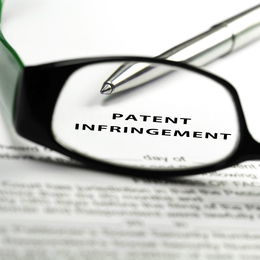
Quick Take: Responding to an Accusation of Patent Infringement
What should you do if your business is accused of patent infringement?
Here are four steps to take if a cease-and-desist letter arrives:
1. The first step is to calm down and check your emotions. Although not all patent enforcement efforts are abusive, they can feel that way when a demand to stop selling a product is made. Take a deep breath and speak immediately with a patent attorney who can help you assess how to respond to the letter.
2. To respond or not to respond, that is the (next) question. Do NOT simply ignore the accusation. Inaction leaves the patentee with little choice but to escalate the matter. And actual notice of another’s patent creates an affirmative duty of due care to determine whether or not the patent is infringed. An initial response can inform the patentee that you are investigating the matter. Given that some response is almost always a good idea, the question is how to respond.
3. Assess the merits of your position. Consider the scope of the patent and whether it remains in force, the strength of your defenses, the importance of the accused product or process to your business, and your personal tolerance for the risk and uncertainty of litigation. The two primary defenses to patent infringement are invalidity (e.g., that the patent should not have been granted) and non-infringement. If your product or process is not critical to your business, it might be best simply to stop the accused activity rather than incur the expense of a dispute. Is it possible to design around the patent? Evaluate the costs of litigation and the probability of success.
4. Decide how to respond. You have many options. Negotiations with the patentee can resolve the dispute with reduced costs and disruption to your business. Agreement might be reached through some form of mediation. If you have a strong invalidity defense, one option is to challenge the patent before the U.S. Patent and Trademark Office. If you have a strong invalidity defense, a strong non-infringement defense, or preferably both, you might reply with a letter detailing your defense(s). A well-drafted response might conclude the matter.
Every case differs and this summary cannot replace a patent attorney’s advice. An experienced patent attorney can best guide your response, handle communications and negotiations with the patentee, and ensure that your interests are protected. Finally, remember that you are not alone: Cease-and-desist letters are common.
Kevin Casey is chair of the Intellectual Property Group at Stradley Ronon Stevens and Young, LLP, and has sent and helped clients respond to hundreds of such letters.
To read the digital edition of South Jersey Biz, click here.
Published (and copyrighted) in South Jersey Biz, Volume 9, Issue 10 (October 2019).
For more info on South Jersey Biz, click here.
To subscribe to South Jersey Biz, click here.
To advertise in South Jersey Biz, click here.








